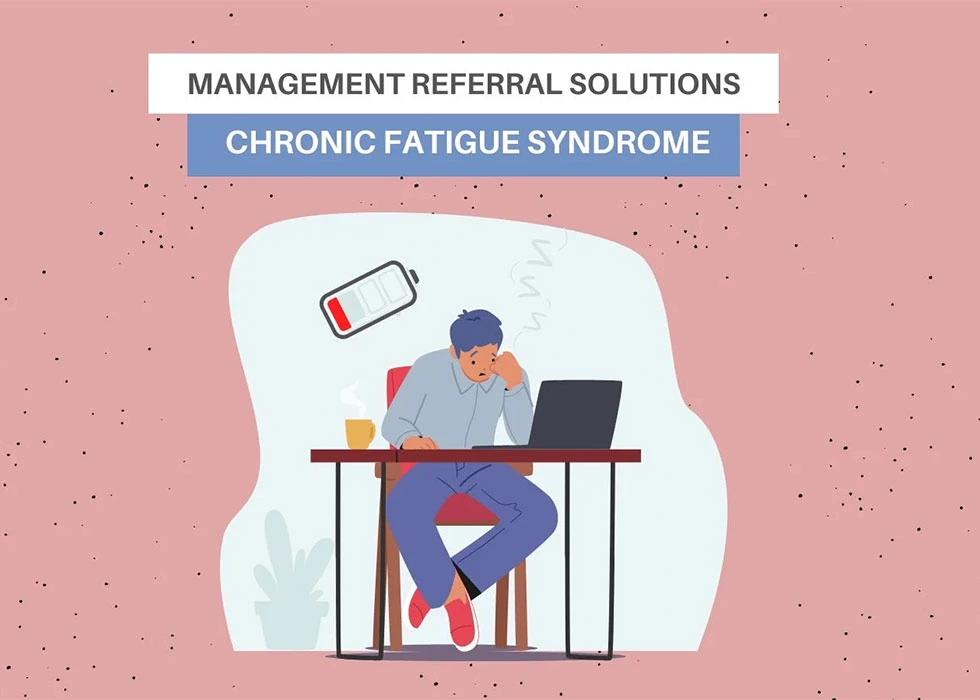
Chronic Fatigue Syndrome (CFS): Causes, Symptoms, and Management
- August 14, 2025
- 1 Like
- 115 Views
- 0 Comments
Chronic Fatigue Syndrome (CFS) — also known as Myalgic Encephalomyelitis (ME) or Systemic Exertion Intolerance Disease (SEID) — is a long-term, complex illness that causes severe, persistent fatigue not relieved by rest.
This condition can drastically reduce a person’s ability to carry out daily activities and may last for years. Symptoms often worsen after physical or mental exertion, a phenomenon called post-exertional malaise (PEM).
What is Chronic Fatigue Syndrome?
Chronic Fatigue Syndrome is now widely recognized as a genuine medical condition, though it was once controversial due to its complex and varied presentation.
The condition affects people of all ages but is most common in women aged 40–60. It’s estimated that 836,000 to 2.5 million people in the United States may have CFS, but the majority remain undiagnosed due to lack of awareness and overlapping symptoms with other illnesses.
Causes and Risk Factors
The exact cause of CFS remains unknown, but research suggests it may result from a combination of factors:
- Infections – Viral (e.g., Epstein–Barr virus, human herpesvirus 6, Ross River virus, rubella) or bacterial (e.g., Coxiella burnetii, Mycoplasma pneumoniae) infections sometimes precede CFS.
- Immune system changes – Some patients have weakened or altered immune responses.
- Hormonal imbalances – Abnormal cortisol or other hormone levels have been observed.
- Genetic predisposition – Family history may increase susceptibility.
- Physical or emotional trauma – Injuries, surgery, or major stress events can trigger onset.
- Energy metabolism issues – Some evidence suggests the body may struggle to convert food into energy efficiently.
Risk factors include:
- Being female (2–4× higher risk than men).
- Age between 40 and 60.
- Family history of CFS or related autoimmune disorders.
- Chronic allergies or environmental sensitivities.
- Ongoing psychological or physical stress.
Symptoms
The hallmark symptom of CFS is severe fatigue lasting at least six months that:
- Is not relieved by rest or sleep.
- Leads to a significant drop in daily activity.
- Worsens after physical or mental activity (PEM), with flare-ups lasting days or weeks.
Other symptoms may include:
- Cognitive problems (brain fog): memory lapses, poor concentration, slowed thinking.
- Sleep disturbances: unrefreshing sleep, insomnia, or disrupted sleep cycles.
- Pain: muscle aches, multi-joint pain without swelling, frequent headaches.
- Flu-like symptoms: sore throat, swollen or tender lymph nodes.
- Orthostatic intolerance: dizziness, lightheadedness, or fainting upon standing.
- Digestive issues: irritable bowel symptoms, bloating, diarrhea, or constipation.
- Sensitivity: to light, sound, smells, certain foods, or medications.
Symptoms often cycle through periods of remission and relapse, making daily life unpredictable.
Diagnosis
There is no single test for CFS.
Diagnosis is made through:
- Detailed medical history and symptom review.
- Physical examination.
- Excluding other conditions with similar symptoms, such as:
- Hypothyroidism
- Sleep disorders
- Lupus
- Fibromyalgia
- Major depressive disorder
- Multiple sclerosis
- Meeting core diagnostic criteria:
- Fatigue for ≥6 months.
- Post-exertional malaise.
- Unrefreshing sleep.
- Cognitive impairment and/or orthostatic intolerance.
Management and Treatment
While there is no cure for CFS, treatment focuses on symptom relief, pacing, and improving quality of life.
1. Activity Management (Pacing)
- Avoid overexertion and balance rest with activity.
- Identify and respect your “energy envelope” to reduce PEM flare-ups.
- Use activity journals to track triggers.
2. Sleep Support
- Maintain a consistent sleep schedule.
- Limit caffeine, nicotine, alcohol, and late-night meals.
- Keep electronics out of the bedroom.
3. Medications
- Pain relief: NSAIDs for muscle/joint pain.
- Antidepressants: low-dose tricyclics, SSRIs, or SNRIs for mood, pain, and sleep.
- Sleep aids: for severe insomnia.
- Immune therapies: under specialist care, such as IV immunoglobulin (IVIG) in select cases.
4. Lifestyle Adjustments
- Gentle stretching, yoga, or tai chi (avoiding strenuous aerobic exercise).
- Nutrient-rich diet with attention to possible vitamin deficiencies (B2, B12).
- Stress reduction techniques: mindfulness, meditation, counseling.
5. Alternative and Complementary Therapies
- Acupuncture, massage, and relaxation therapy may help with pain and stress.
Outlook and Living with CFS
CFS progresses differently for each person.
Some improve over time, but only a small percentage achieve full recovery. Most learn to manage their symptoms through pacing, lifestyle adjustments, and supportive care.
CFS can lead to social isolation, depression, and anxiety — making emotional support vital. Joining patient support groups, whether in-person or online, can help with coping strategies and provide encouragement.Key takeaway: While CFS can be life-altering, early diagnosis, careful pacing, and a personalized treatment plan can significantly improve daily function and quality of life.


Leave Your Comment